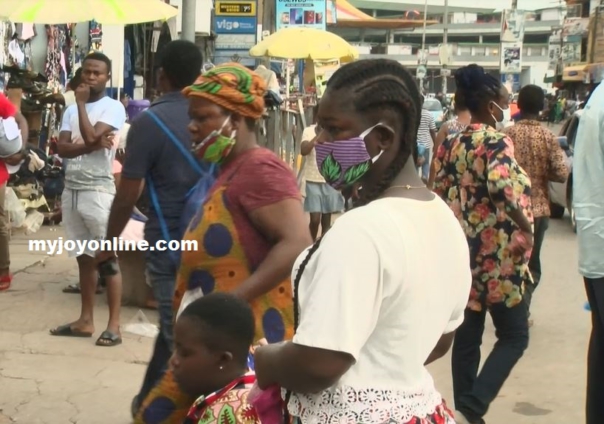The Leader of Risk Communication for the National Covid-19 response team has cautioned Ghanaians not to be complacent about the rapid reduction of the infection rate.
Dr Dacosta Aboagye said that the drop in the local infections (community spreads) is as a result of the compliance to the measures put in place by the government, Ghana Health Service, Ministry of Health and other stakeholders like the media.
He believes that in spite of the reduced Covid-19 infection rate, the nation is still at a critical stage in the fight against the pandemic, which requires intensified public education and community engagement.
His fears that out of complacency citizens might let down their guard on the safety protocols, leaving them open to the spread of the virus.
“The reason why I said we have reached the critical stage in the fight against the COVID-19 is that as a country, this is the time that we have to see the need to intensify public education, community engagement like house-to-house education and make sure that every Ghanaian is adhering to the safety protocols; wearing of the face masks, regular washing of hands of at least 20 seconds with soap under running water,” he cautioned.
In addition to adhering to all existing safety protocols, Dr Aboagye encouraged Ghanaians to maintain a healthy diet to help fight the virus.
“If you are leaving your homes, please wear your face masks because it is a law to wear them and the police are still enforcing that law.
"We have gotten to a point in the fight against the virus where the citizens have to help us to eradicate the infection from the country entirely as we continue to ease some of the restrictions”.
“This is the time that every Ghanaian should eat a well-balanced diet from local foods and adhere to all the preventive measures to avoid what we call the second wave.
"We should not be complacent that the infection rate is reducing and so we will not comply with the safety protocols; we should not be complacent”, he said emphatically.
He called on the media to use their channels to educate the public on the need to stay safe as the fight against the virus had reached a critical stage.
Currently, there are no recorded Covid-19 cases in the North East, Savannah, Upper East, and Upper West Regions, and residents have been charged to do everything possible to maintain that situation.
Greater Accra, Ashanti, Central, Eastern, and Western continue to be the Regions with the highest number of active cases.
Thus far, a total of 40,567 persons have recovered from the virus. This means the nation's recovery rate has improved from 89.5 per cent to 95.1 per cent in three weeks.
Latest Stories
-
Vasseur questions ‘strange momentum’ of Formula One race director change
3 mins -
“I am disappointed in Kojo Manuel” – Merqury Quaye on “no tie” comment
4 mins -
Nana Kwame Bediako; The beacon of unity
6 mins -
Western Region: NDC youth wing embarks on phase 2 of ‘retail campaign’
32 mins -
Action Chapel International holds annual Impact Convention in November
32 mins -
Jana Foundation urges young women to take up leadership roles
37 mins -
All set for Joy FM Prayer Summit for Peace 2024
48 mins -
Managing Prediabetes with the Help of a Dietitian
1 hour -
Joy FM listeners criticise Achiase Commanding Officer’s election comment
1 hour -
Legal Aid Commission employees threaten strike over poor working conditions
2 hours -
Ghana ranked 7th globally as biggest beneficiary of World Bank funding
2 hours -
IMF board to disburse $360m to Ghana in December after third review
2 hours -
Former Bono Regional NPP organiser donates 13 motorbikes to 12 constituencies
2 hours -
Securities industry: Assets under management estimated at GH¢81.7bn in quarter 3, 2024
2 hours -
Gold Fields Ghana Foundation challenges graduates to maximise benefits of community apprenticeship programme
3 hours

